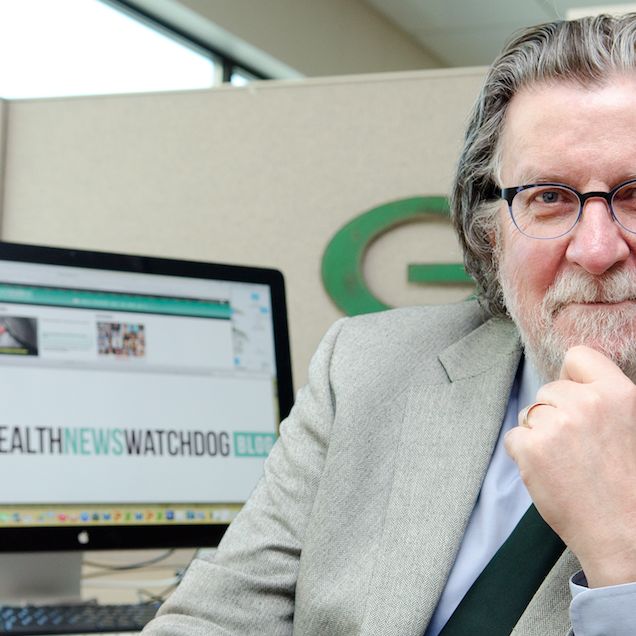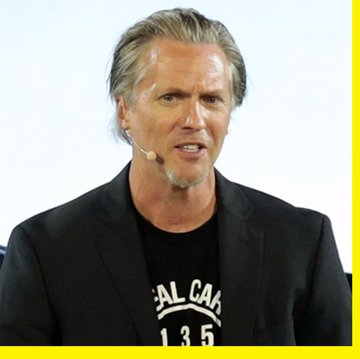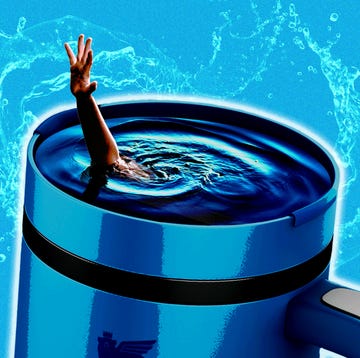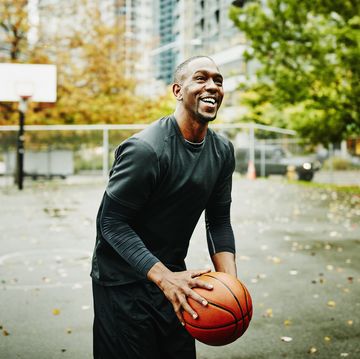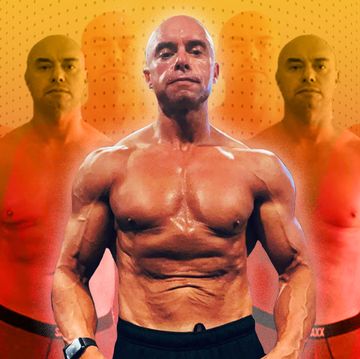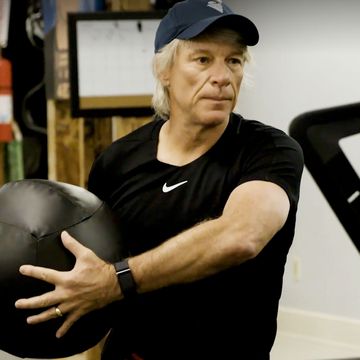Last month, the University of Maryland published a press release touting a new chocolate milk that improved football players’ cognitive skills.
Impressed by the news, at least seven high schools in the U.S. looked into buying this brain-boosting beverage to help their student athletes.
The only problem? The study was a sham.
Gary Schwitzer cracked the case. He’s the founder of HealthNewsReview.org, a site that evaluates and grades daily health news reporting by major U.S. news organizations.
Schwitzer and his team of watchdogs poke holes in dubious studies and lay the smack down on misleading headlines.
Every health news story on Schwitzer’s site is given a score from zero to five stars. The chocolate milk report received one star.
Schwitzer’s team found no hard science or evidence in the press release, and the study author wouldn’t answer their calls asking for explanations. A week later, Maryland launched an internal review of the study.
Score another victory for Schwitzer, whose impactful work with HealthNewsReview.org has landed him a spot on the Rodale 100—a list of innovators who are changing the face of the health and wellness universe in 2016 and beyond.
Not that Schwitzer is in it for the accolades.
“If we weren’t here, the [chocolate milk] claim would have been out there influencing journalists and the general public,” Schwitzer says.
“Schools were already prepared to use this product where we don’t even know the data. We’re not making trouble for trouble’s sake. They’re misleading people and there’s harm in that.”
Every day, the staff at HealthNewsReview.org reviews approximately 30 major news outlets that report on a health intervention, new device, dietary approach, or medical test.
The managing editor then chooses the few that HealthNewsReview.org will examine and assigns three separate experts to write a review within two days.
So if you’re curious about a report you saw in the news a couple days ago, go to the site and you’ll find the definitive review.
Over the past 10 years, Schwitzer and his reviewers have graded 2121 news articles, giving 60 percent fewer than three stars.
Some of their biggest busts: UCLA exaggerated how close they were to curing two serious genetic disorders, dried plums don’t necessarily reduce colon cancer, and it’s too soon to tell whether a game could treat people with schizophrenia.
“The American public is told every day that everything is wonderful, nothing has harms, and we don’t need to talk about costs,” Schwitzer says. “That may overwhelm any of the good solid research and reporting that’s done.”
Schwitzer understands that health journalists have to deal with fast deadlines. “But this feeds this crazy tsunami of stories about research that is not ready for prime time.”
He would know: He spent 14 years as a television medical reporter.
The 64-year-old covered stories for CNN in Atlanta, WFAA-TV in Dallas, and WTMJ-TV in Milwaukee. In 1991, he made it all the way to the head of the medical news unit at CNN—but ultimately resigned.
“I was going home throwing things at the TV every night, seeing so many ethical and editorial issues,” Schwitzer said.
In 2001, he landed a teaching gig at Minnesota, launching the school’s health journalism graduate program.
Then Schwitzer came across an Australian website that he wished he had thought of first: Media Doctor. He called up the founder and won his approval to adopt the site’s rating system.
Soon, Schwitzer secured funding from his former employer, the Informed Medical Decisions Foundation, where he produced health videos for patients with newly diagnosed health issues.
“Sure, we want smarter journalism, smarter news releases, and smarter media messages,” Schwitzer says. “But what’s really important is that we have a smart healthcare consumer population that would save money in the long run, make better choices, and get better results. That’s my ideal.”
Not all news organizations are sucking wind, Schwitzer says. “We are seeing some of the best healthcare journalism that we’ve ever had in this country.”
But those are mountain peaks of excellence, he says.
“And the valleys between those occasional peaks are becoming deeper and wider.”
